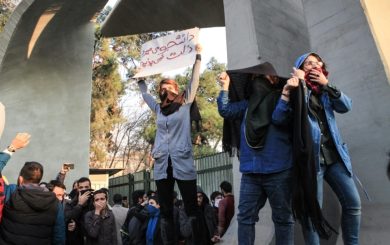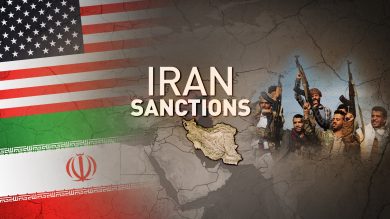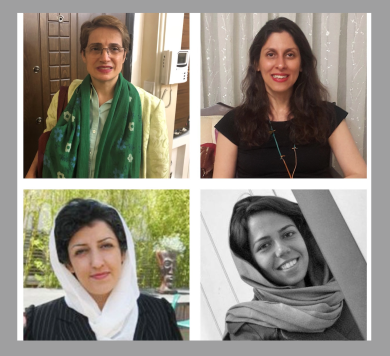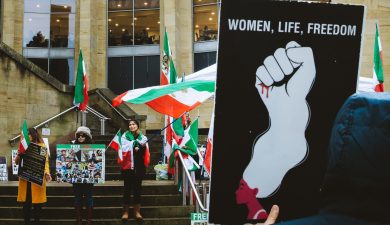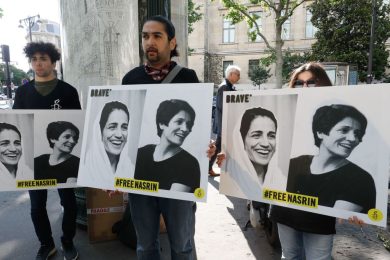In an increasingly interconnected world, terrorism is no longer confined to the shadows. From bombings and proxy wars to cyberattacks and disinformation, terror has adapted to the globalized age. One of the key tools that democracies and international organizations have used to confront these threats is terrorist designation — the legal act of labeling a group or regime as a terrorist entity.
But does it work? And if so, how?
The evidence from past designations suggests that while not a silver bullet, terrorist designations can be a potent tool — disrupting financial lifelines, eroding legitimacy, and curbing violence. But only if they’re used strategically, consistently, and as part of a broader approach.
1. What is Terrorist Designation?
At its simplest, terrorist designation is a legal determination by a government or an international body that an organization or regime is engaged in terrorism.
Key Effects:
• Criminalization: Providing material support to the designated entity becomes a crime.
• Financial isolation: Banks must freeze assets and cut off transactions.
• Diplomatic pressure: Allies are discouraged from engagement.
• Reputational damage: A label of terrorism carries enormous stigma.
• Pathway for victims: Families of victims can sue for damages in some jurisdictions.
Designation also sends a clear moral message: terrorism is not politics — it is violence against the innocent.
2. How the Designation Tool Evolved
Terrorist designation has been around for decades, but it became a central pillar of counterterrorism after 9/11.
• The U.S. created the Foreign Terrorist Organization (FTO) list, managed by the State Department, and the Specially Designated Global Terrorist (SDGT) list, managed by the Treasury Department.
• The EU adopted a similar sanctions framework, identifying both individuals and groups linked to terrorism.
• The UN established sanctions regimes under Security Council Resolutions for groups like Al Qaeda and ISIS.
Today, dozens of countries maintain their own lists, often coordinating to isolate global terror networks.
3. Case Study: Hezbollah’s Growing Isolation
One of the most instructive examples of designation success is Hezbollah.
The Timeline:
• In 1997, the U.S. designated Hezbollah’s military wing as a terrorist organization.
• For years, European governments refused to follow suit, citing Hezbollah’s political role in Lebanon.
• But by 2013, the EU designated Hezbollah’s “military wing” — a partial step.
• In 2019, the UK and Germany designated Hezbollah in its entirety, ending the false distinction between “political” and “military” arms.
Impact:
• Hezbollah’s global fundraising networks were disrupted.
• Its operatives in Europe faced expulsion or prosecution.
• Banks and charities linked to Hezbollah were shuttered.
• Even in Lebanon, public perception of Hezbollah’s legitimacy suffered.
While Hezbollah remains powerful, designations have made it harder for the group to raise funds abroad and launder money through Western financial systems.
4. Case Study: The Taliban and Sanctions Pressure
For decades, the Taliban was a pariah regime, designated under various terrorism-related sanctions.
Results:
• The Taliban’s access to global finance was crippled, limiting their ability to govern effectively.
• International travel bans isolated Taliban leaders.
• Although the group adapted and survived, it was forced to rely on illicit funding (like opium), undermining its claim to legitimacy.
The 2021 U.S. withdrawal shifted these dynamics, but the Taliban’s decades-long struggle with designation shows the long-term cost of being labeled a terrorist entity.
5. Iran’s IRGC: A Key Test Case
Perhaps the most current and complex example is the IRGC — designated by the U.S. in 2019 as a Foreign Terrorist Organization.
The IRGC is not just a military force. It’s a massive economic empire and a political power broker in Iran and beyond.
The Effects:
✅ Financial pressure: Sanctions on the IRGC have disrupted its global investments and shipping networks.
✅ Legal liability: Victims of IRGC terror can sue for damages.
✅ Political message: The world sees Iran’s military not as a state army, but as a terror network.
✅ Deter foreign cooperation: Countries and companies think twice before engaging with IRGC-affiliated firms.
6. Why Designation Works: Key Mechanisms
a) Financial Disruption
Terrorist designations freeze bank accounts, shut down shell companies, and sever links to the global financial system. Groups that rely on extortion, drug trafficking, or smuggling find it much harder to launder funds or buy weapons.
b) Reputational Damage
Being labeled a terrorist group makes it politically toxic to work with them — even for states that might share some goals. Diplomats, businesses, and charities distance themselves.
c) Criminal Penalties
Individuals who continue to support designated entities face prosecution, fines, and jail time. This discourages fundraising and propaganda efforts.
d) Empower Victims
In some countries, families of terror victims can sue designated entities — striking back in court even when battlefield justice is impossible.
7. Challenges and Limitations
No tool is perfect — and terrorist designations have real limitations.
• Adaptation: Terror groups are nimble. They rename themselves, switch bank accounts, and find new donors.
• Humanitarian Impact: Overly broad sanctions can harm civilians, especially in fragile states like Yemen or Afghanistan.
• Political Disputes: Allies don’t always agree on who is a terrorist, leading to patchwork enforcement.
The key is not to abandon designations, but to refine them, target them precisely, and pair them with other diplomatic and humanitarian efforts.
8. Global Cooperation: The Key to Success
One lesson from past designations is that no country can do this alone.
• When only the U.S. designated Hezbollah, the group found safe havens in Europe.
• When the EU joined in, Hezbollah’s funding dried up faster.
• Global banking regulations (like SWIFT) amplify sanctions when everyone enforces them.
Terrorist designation works best when it’s global — not piecemeal.
9. Voices from the Ground: Why Designation Matters for Victims
For survivors of terrorism — whether they’re families of bomb victims in Israel, Syria, Iraq, or Lebanon — seeing a terrorist group designated is more than legal language. It’s validation.
• It says the world recognizes the injustice they’ve suffered.
• It offers a path to justice in courts and in history.
• It sends a message to future victims: you are not forgotten.
10. The Role of Civil Society and Activists
Terrorist designations don’t come out of thin air. Activists, journalists, and survivors often lead the charge:
• Investigative reports reveal funding ties and secret bank accounts.
• Diaspora communities lobby parliaments to act.
• Survivors testify in hearings and share their stories with the world.
This bottom-up pressure is often what finally pushes governments to take action.
11. Lessons from Other Regimes: What We Must Learn
Across dozens of cases — from the Taliban to Hezbollah to Al-Shabaab — three lessons emerge:
✅ Target the money, not the people
Sanctions should hit those funding terror, not the civilians they claim to “represent.”
✅ Pair designation with diplomacy
Terrorist designations work best when they’re part of a larger diplomatic effort — including peace talks and political solutions.
✅ Never treat terror as just “political differences”
Groups that kill civilians for political ends must be recognized for what they are — terrorists. That clarity saves lives.
12. A Call to Action: The IRGC and Beyond
Today, one of the most urgent terrorist designations still pending in much of the world is the IRGC. The EU, the UK, and others have debated following the U.S. lead.
Why it matters:
• The IRGC funds Hezbollah, Hamas, and the Houthis.
• It runs Iran’s political prisons and suppresses protests.
• It uses global businesses to launder money for war.
• Its victims — from Iranian students to Syrian civilians — deserve recognition.
If the world can learn anything from past designations, it’s this: labeling terror is the first step to ending it.
Conclusion: Terrorist Designation Works — When We Make It Work
Terrorist designation is not a magic wand. It won’t end wars overnight or bring back the dead. But it does:
• Dry up funding for violence
• Strip legitimacy from those who kill innocents
• Create legal pathways for accountability
• Strengthen global resolve to stand against terror
For those who have lost loved ones to bombings, drones, or assassinations, this tool matters. It says: we see you, we stand with you, and we will not let terror hide behind politics.
Join Our Newsletter!
Stay informed with the latest updates, news, and ways to take action in the fight for justice and global security. Sign up now to get updates delivered straight to your inbox!

